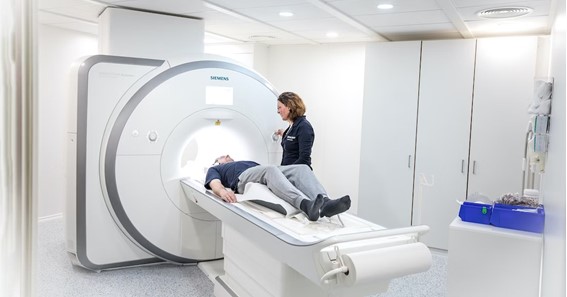Are you curious to know what is MR in medical? You have come to the right place as I am going to tell you everything about MR in medical in a very simple explanation. Without further discussion let’s begin to know what is MR in medical?
Medical terminology is filled with abbreviations and acronyms that play a crucial role in effective communication and documentation within the healthcare industry. One such abbreviation you may come across is “MR.” In this blog post, we will dive into the meaning of “MR” in medical terminology and explore its importance in different medical contexts.
What Is MR In Medical?
“MR” is a widely used abbreviation in the medical field, and its meaning can vary depending on the context in which it is used. Here are a few common uses of “MR” in medical terminology:
1. Magnetic Resonance Imaging (MRi):
In the context of diagnostic imaging, “MR” refers to Magnetic Resonance Imaging. MRI is a non-invasive imaging technique that uses a powerful magnetic field and radio waves to generate detailed images of the internal structures of the body. It provides valuable information for diagnosing and monitoring various medical conditions, such as neurological disorders, musculoskeletal injuries, and cancer.
2. Medical Records:
“MR” is also commonly used as an abbreviation for “Medical Record” or “Medical Report.” Medical records are comprehensive documents that contain a patient’s medical history, including information on their diagnoses, treatments, medications, laboratory results, and other pertinent data. These records serve as a crucial reference for healthcare providers to ensure continuity of care, track patient progress, and make informed decisions about treatment plans.
3. Mitral Regurgitation:
In cardiology, “MR” can refer to “Mitral Regurgitation.” Mitral regurgitation is a condition characterized by the backward flow of blood from the left ventricle of the heart into the left atrium due to improper closure of the mitral valve. This condition can lead to symptoms such as fatigue, shortness of breath, and heart murmurs, requiring medical evaluation and potentially treatment.
The Importance Of “MR” In Medical
1. Accurate Diagnosis:
The use of “MR” in medical imaging, such as MRI, allows healthcare professionals to obtain detailed and precise images of internal structures, aiding in accurate diagnoses. MRI helps identify abnormalities, assess the extent of diseases, and guide treatment decisions, leading to improved patient outcomes.
2. Efficient Communication:
Abbreviations like “MR” in medical records streamline communication among healthcare professionals. Medical records provide a centralized source of information, enabling different healthcare providers to access pertinent patient data efficiently, facilitating collaboration, and ensuring comprehensive care.
3. Effective Documentation:
Using abbreviations like “MR” in medical reports and records promotes efficient documentation. It allows for concise yet clear representation of medical information, ensuring that essential details are captured accurately, reducing the risk of errors and improving the overall quality of healthcare documentation.
4. Patient Safety:
Accurate and accessible medical records, indicated by the abbreviation “MR,” play a crucial role in ensuring patient safety. Healthcare providers rely on medical records to make informed decisions about treatments, medications, and interventions, minimizing the risk of adverse events and improving patient outcomes.
Conclusion
In the realm of medical terminology, the abbreviation “MR” holds various meanings depending on the context in which it is used. Whether referring to Magnetic Resonance Imaging, Medical Records, or Mitral Regurgitation, the use of “MR” serves to streamline communication, enhance diagnostic accuracy, and support efficient documentation within the healthcare industry. Understanding these abbreviations enables effective communication between healthcare professionals, contributes to accurate diagnoses, and ultimately promotes optimal patient care.
FAQ
What Is The Job Of An MR?
Their job is to promote the existing medicine to the doctors, pharmacists, and chemists. They discuss the clinical usage, dosages, etc. with the pharmacists and doctors. Medical representatives (MR) are the people who perform key communication between the medical professionals and the drug manufacturing companies.
What Is MR In Medical Terms?
Mitral regurgitation (MR) is defined as an abnormal reversal of blood flow from the left ventricle (LV) to the left atrium (LA). It is caused by disruption in any part of the mitral valve (MV) apparatus.
What Is The Salary Of MR In India?
MR salary in India with less than 1 year of experience to 10 years ranges from ₹ 0.6 Lakhs to ₹ 5 Lakhs with an average annual salary of ₹ 2.4 Lakhs based on 887 latest salaries.
What Is The Full Name Of MR?
Mister
Mister, usually written in its contracted form MR. or MR, is a commonly used English honorific for men without a higher honorific, or professional title, or any of various designations of office.
I Have Covered All The Following Queries And Topics In The Above Article
What Is MR In Medical Terms
What Is The Full Form Of MR In Medical
What Is MR In Medical Field
What Is The Role Of MR In Medical Field
What Is The Meaning Of MR In Medical Terms
What Is A MR In Medical Terms
What Is An MR In Medical Terms
What Is Meant By MR In Medical Field
What Is MR Means In Medical
What Is An MR In Medical
What Is MR In Pharmacy
What Is MR In Medical Terms
What Is MR In Medical Salary
What Is MR In Medical Pharma
What Is MR In Medical Doctor
What Is MR In Medical Course
What Is MR In Medical Assistant
MR Full Form In Medical Salary
What Is MR In Medical
What does MR stand for medically
What is the full form of Mr in medical?

